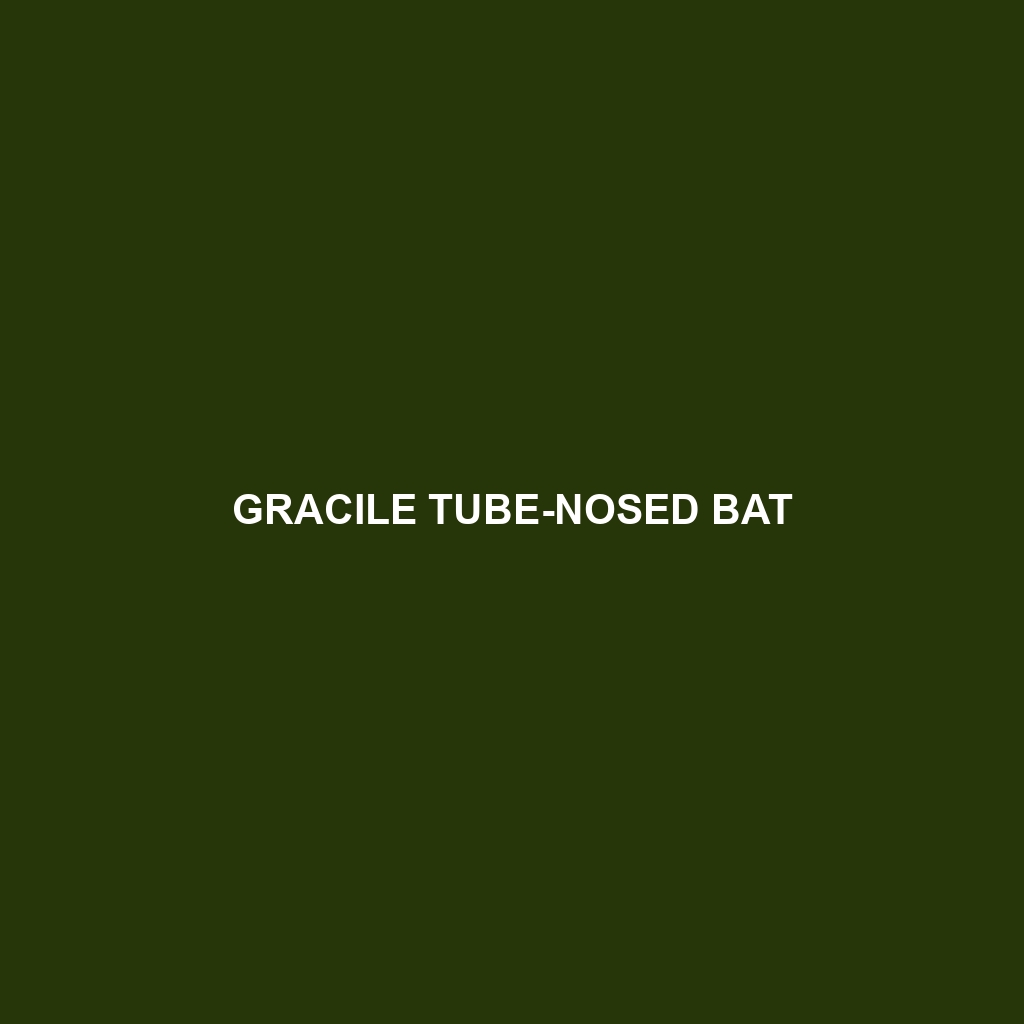-

Kashmir Cave Myotis
Discover the fascinating world of the Kashmir Cave Myotis (Myotis emarginatus), a vulnerable bat species native to the Himalayas. Adapted to dark, rocky habitats, these nocturnal creatures play a crucial role in maintaining ecosystem balance through their pest control abilities and unique social behaviors. Learn about their distinct physical traits, diet, and the conservation efforts…
-

Keen’s Myotis
Discover the intriguing world of Keen’s Myotis (Myotis keenii), a small bat species native to the Pacific Northwest. Known for its remarkable echolocation abilities and nocturnal foraging habits, this bat plays a crucial role in controlling insect populations and maintaining ecosystem health. Learn about its unique physical traits, habitat preferences, and conservation status in our…
-

Large-headed Serotine
Discover the fascinating world of the Large-headed Serotine, a unique bat species known for its impressive size and acrobatic flying abilities. Found across Europe and Asia, this nocturnal creature plays a vital role in controlling insect populations and thriving in diverse habitats. Learn about its dietary habits, reproductive behaviors, and the conservation efforts necessary to…
-

Holts’ Long-eared Bat
Discover the fascinating Holts’ Long-eared Bat, a vulnerable species found in North America’s lush temperate regions, where it plays a crucial role in ecosystem balance by controlling insect populations. With their distinctive long ears and unique foraging techniques, these nocturnal bats exhibit remarkable adaptability, thriving in both wild and urban environments. Learn more about their…
-

Gould’s Long-eared Bat
Discover the fascinating world of Gould’s Long-eared Bat (Nyctophilus gouldi), a medium-sized nocturnal mammal thriving in Australia’s diverse habitats, from woodlands to urban areas. Known for its impressive echolocation abilities and distinctive large ears, this vulnerable species plays a vital role in regulating insect populations and maintaining ecosystem balance. Learn about its unique behaviors, breeding…
-

Gracile Tube-nosed Bat
Discover the intriguing world of the Gracile Tube-nosed Bat, a nocturnal insectivore native to Southeast Asia’s lush rainforests. With its unique tubular nostrils and specialized hunting techniques, this vulnerable species plays a vital role in pest control and ecosystem health while facing threats from habitat loss. Explore its fascinating behaviors, physical characteristics, and conservation challenges…
-

Grandidier’s Serotine
Discover the intriguing world of Grandidier’s Serotine, a unique bat species native to the lush forests of Madagascar. With its distinctive adaptations, social behaviors, and vital role in controlling insect populations, this vulnerable species faces threats from habitat loss and deforestation. Dive into this blog post to learn more about its fascinating characteristics and the…
-

Harmless Serotine
Discover the fascinating world of the Harmless Serotine, a medium-sized bat known for its impressive adaptability to both forested and urban environments across Europe and Asia. With a unique nocturnal hunting strategy, this insect-eating bat plays a vital role in maintaining ecological balance while showcasing remarkable flying agility and social behavior. Learn more about its…
-

Elery’s Tube-nosed Bat
Discover the intriguing world of Elery’s Tube-nosed Bat (Murina eleryi), a vulnerable species native to Southeast Asia’s temperate forests. With its distinctive tube-like nose and agile flight, this small bat plays a vital role in controlling insect populations and supporting biodiversity through its pollination activities. Learn about its habitat, behaviors, and the conservation efforts aimed…
Search
Popular Posts
-
Lygosoma corpulentum
Discover the Lygosoma corpulentum, or fat skink, a robust insectivorous lizard native to Southeast Asia’s moist tropical rainforests and varying habitats. With a stocky body, impressive camouflage, and remarkable adaptability, this ovoviviparous species plays a crucial role in maintaining ecological balance.
-
Lygosoma boehmei
Lygosoma boehmei is a slender, nocturnal insectivore found in humid tropical rainforests and savannas of Southeast Asia, exhibiting a smooth, camouflaging texture and remarkable burrowing abilities. This vulnerable species plays a crucial role in its ecosystem by controlling insect populations and serving as prey for larger predators.
-
Lygosoma bampfyldei
Lygosoma bampfyldei, commonly found in tropical and subtropical regions, is a moderately sized lizard measuring 15 to 25 cm, known for its elongated body and glossy, camouflage coloration. This insectivorous species thrives in moist habitats and plays a vital role in maintaining ecological balance by controlling insect populations.
Categories
Tags
animal adaptations (924) animal behavior (5000) animal reproduction (865) behavior (920) biodiversity (7853) conservation (1670) conservation efforts (1778) conservation status (5748) diet (2104) ecological balance (2087) ecological role (1952) ecosystem (1469) ecosystem role (2901) endangered species (2514) habitat (3280) habitat conservation (1136) Habitat Destruction (1421) habitat loss (3385) herpetology (870) insectivorous reptiles (948) IUCN Red List (1971) lizard behavior (881) lizard diet (944) lizard reproduction (1101) nocturnal animals (2754) nocturnal behavior (2592) nocturnal reptiles (1061) physical characteristics (2058) predator-prey relationships (927) reproduction (2890) reptile behavior (1037) reptile conservation (1348) reptile reproduction (1069) rodent species (1325) seed dispersal (2145) Seed Disperser (979) small mammals (1168) snake behavior (952) snake diet (1061) snake reproduction (1129) tropical forests (948) Vulnerable Species (4926) wildlife (2511) wildlife conservation (5355) wildlife protection (1008)


